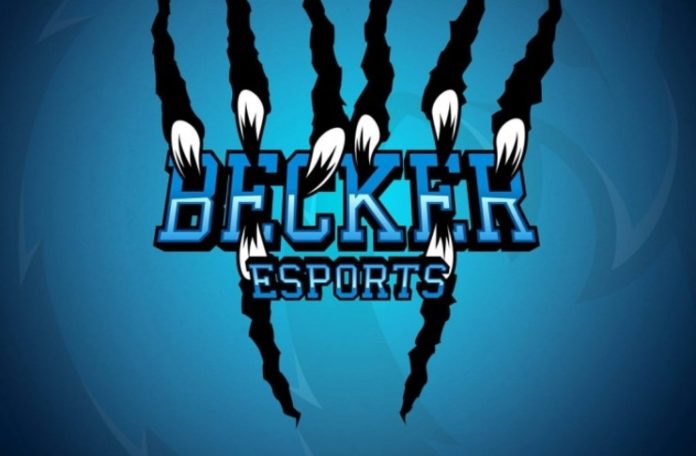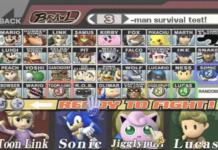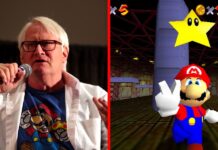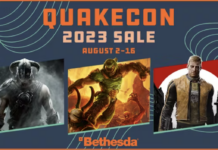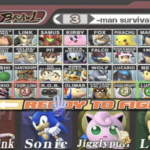As the world of esports continues to grow exponentially, many colleges around North America are beginning to invest more heavily into developing esports programs; whether it’s establishing a varsity esports team or creating specific courses that touch on different aspects of the industry, there is plenty to do to build a proper esports presence in schools.
Becker College was one of the first schools in New England to get involved in varsity esports. The program continues to grow each and every year, and Becker College has brought in more and more talent to help push varsity esports to the next level.
One of the main personnel they’ve brought on is Nicholas “Shifty” Travis, a longtime competitive esports player turned coach. Having coached multiple prestigious esports teams and securing championships, he now also serves as assistant general manager to the Becker College varsity esports program, as well as the Head Coach of their Overwatch team.
We got to ask Shifty some questions about his career and role with Becker College, the details about the varsity esports programs, why college esports can be a life-changing experience, and much more. Check it out!
(Questions and answers have been edited for clarity.)
—–
Let’s talk about your background: what initially got you into esports, and specifically, how did you get involved with Becker College when it came to esports?
Shifty: I started off as a player competing in tournaments from Rainbow Six, Hearthstone, and Overwatch before transitioning into becoming a Head Coach for Overwatch full-time in late 2016. The first pro team I signed with was Team Dignitas and after that I signed with Cloud9 to build the London Spitfire academy team called the British Hurricane, where we won the Overwatch Contenders, as well as the Atlantic Showdown titles.
During this time, I also did freelance coaching through Gamer Sensei which helped me get into touch with several colleges who wanted to expand into esports. I came to enjoy coaching collegiate teams even more than professional teams as they offered me a unique opportunity to help universities build their esports programs and have a bigger positive impact on both the growth of esports as well as help shape the experience of students with a passion for esports.
One of those colleges I worked with was Becker College, and I was lucky that they offered me an opportunity to utilize my expertise and passion to help shape and enrich the esports experience here to really make something special.
Becker College started up one of the first varsity esports programs in New England. What were the challenges in venturing into this uncharted territory of esports and successfully starting up the program?
Shifty: Getting people to recognize that esports is just as serious and amazing as traditional sports, and requires similar resources and commitment was one of the biggest hurdles. Many colleges have the problem that they only want to dip their toes into esports without really investing much into it. Although Becker College has a smaller student body, we’ve had some fantastic early success with our esports teams thanks to investing in game-specific esports coaches (which is still very rare in the collegiate scene.)
Another challenge was the fact that many of the tournaments and leagues we wanted to compete in started off with a lot of issues: inconsistent rules, lack of important info, large skill gaps in matchups, etc. Luckily we’ve had a ton of great coaches and directors giving them feedback that’s helped them improve the competitive experience tremendously.
The major games at Becker College appear to be League of Legends and Overwatch. How did these two in particular stand out to become the flagship titles of the varsity esports program?
Shifty: A combination of the students at Becker College being particularly interested and attracted to the two titles as well as the fact that the collegiate scene for both titles have grown to become very promising. That said, we are looking to expand our varsity program to additional titles in the near future!
Becker College continues to add rosters for more and more games. How is it decided which esports games will have an official roster?
Shifty: We’re always looking at the possibility to add more games that we can compete in, however ultimately it boils down to a combination of interest from the students at Becker College itself as well as opportunities in the collegiate competitive space such as leagues and tournaments to compete in. When these two stars align, we can create a club team for the new game, and if we’re particularly competitive at it, or there is a large enough opportunity to expand with the game, then we promote the team with a Varsity designation with even more school support including scholarship opportunities.
There are limited scholarships offered for League of Legends and Overwatch. What can an aspiring student do to better their shot at landing one of these scholarships? What are some examples of model students who’ve previously earned esports scholarships at Becker College?
Shifty: Being exceptional at the game in knowledge, awareness, mechanical skill, and being a great teammate will be what lands you a scholarship. We look for hungry players ready to excel and eager to improve even further. In Overwatch, being ranked at least in Masters, and in League, being ranked at least in high Plat will be good benchmarks to aim for but they aren’t everything. You also need to be able to play the heroes/champs that are required for the meta and be able to adapt to future metas, which makes flexibility an important factor.
Already having experience playing in organized teams is a great way to separate yourself from others and ensure that you have a good foundation for communication and teamwork. Also, don’t forget that your grades are equally important. Class responsibilities always come before Varsity commitments and we need players to be able to take care of their responsibilities in both without compromising one another.
As for model students, I could write a story of every student that has earned a scholarship on our varsity teams as a great model and you’re asking me just to choose one?! Fine.
Sam Hauser is a recent grad that started off as an average Overwatch player – a bit reserved and unsure of himself. However, he really opened up and prospered once he joined the Overwatch team, taking a lot of my advice to heart and putting in a ton of effort to improve both in practice and outside of practice. He was a model team player, always open to feedback and the first to admit when he made a mistake. He was the type of player that would always look to how he could make the people next to him succeed, not just himself. He became a leader on the team, earned one of the first scholarships we’ve ever given out, and always helped lead by example by giving 110% every scrim.
He ended up easily being one of the best players by the time he graduated and seemed to come across as a more confident individual overall.
What is the week-to-week schedule like for a varsity esports player at Becker College? How do they go about training, entering tournaments and so on?
Shifty: Typically, varsity players are expected to practice with the team three days per week, two to four hours per day (primarily through scrims against other top collegiate teams,) in combination with VOD reviews and coach feedback.
In addition to practice, we usually have 1-3 official matches per week including tournaments, show matches, and league play. Players are expected to have at minimum 85% attendance and communicate well ahead of time any possible conflicts in their being able to make a practice or match.
Players often have one-on-one reviews with their coach outside of the typical practice schedule on things they may be struggling with or to help improve certain areas of their gameplay.
How many matches/tournaments against other varsity esports programs will Becker College play in a season?
Shifty: This depends on the season, the game, and leagues we compete in. However, a rough estimate would be around three tournaments and 14-20 matches. We’re always on the lookout for great opportunities to showcase our Varsity teams but are also equally careful not to overload our students with more commitments than they can handle which is why we make sure to keep an open communication with them in that regard.
With COVID-19, traditional practicing methods and in-person tournaments haven’t been possible. How has the esports program adapted to this unprecedented challenge?
Shifty: COVID-19 has been a tough obstacle for everyone and we take the health and safety of our students very seriously. That’s why for Fall 2020, Becker decided not to take any chances and close the campus in favor of online only classes. While unfortunately this meant that our teams were unable to use our well-equipped practice facilities or attend practices or live tournaments in person, Esports is wonderfully resilient in that we can continue our practices online with excellent efficiency.
We also competed in multiple online tournaments and leagues such as the NECC, Tespa, and CSL. On top of that, we hosted our own tournaments and show matches inviting other top collegiate teams to compete with. When they open the campus back up (which we plan to next semester Spring 2021) we’ve already got a plan in place which can be read in detail here.
The world of esports can be cutthroat and highly competitive. How does the program prepare students for this landscape, and how can it gear them up for a potential career in esports?
Shifty: Students interested in esports management, marketing, event and tournament planning, community, business development, production, broadcasting, streaming and content creation are also welcome to explore the college’s first-in-the-nation degree program in Esports Management as well as its new degree program in Content Creation & Emerging Media.
Additionally, students interested in game design and development are welcome to explore the college’s highly-ranked Interactive Media Design degree program. Becker College is known to have graduates that later find roles or established relationships with major game developers such as Activision Blizzard, Riot Games, and Hi-Rez Studios.
Lastly, since I personally have a sizable amount of personal experience and ties to major esports organizations and scenes, I freely share my knowledge, help, and advice to those at Becker College to help them understand what to expect and what it takes to succeed at their goals in esports.
What do you think Becker College has to offer the world of esports that no other program has? What do you think are the strongest takeaways for students that have gone through the program?
Shifty: Becker College isn’t just a college that can offer students a highly competitive esports environment, it’s also one of the few colleges that can offer opportunities to get involved with the people who make the games they play! Becker College has been consistently ranked by The Princeton Review for the past eight years as a top undergraduate school to study game design–it is currently ranked 2nd in the world.
The vast majority of the varsity teams are majoring in things like Esports Management, Game Design, and Interactive Media, so you’re around people that are just as passionate as you are about the games we play. You’ll be making friends and connections with people who are planning to make their living off them. Becker College also offers top quality coaching for every varsity team while most other colleges either offer none or one that’s in charge of all the games.


